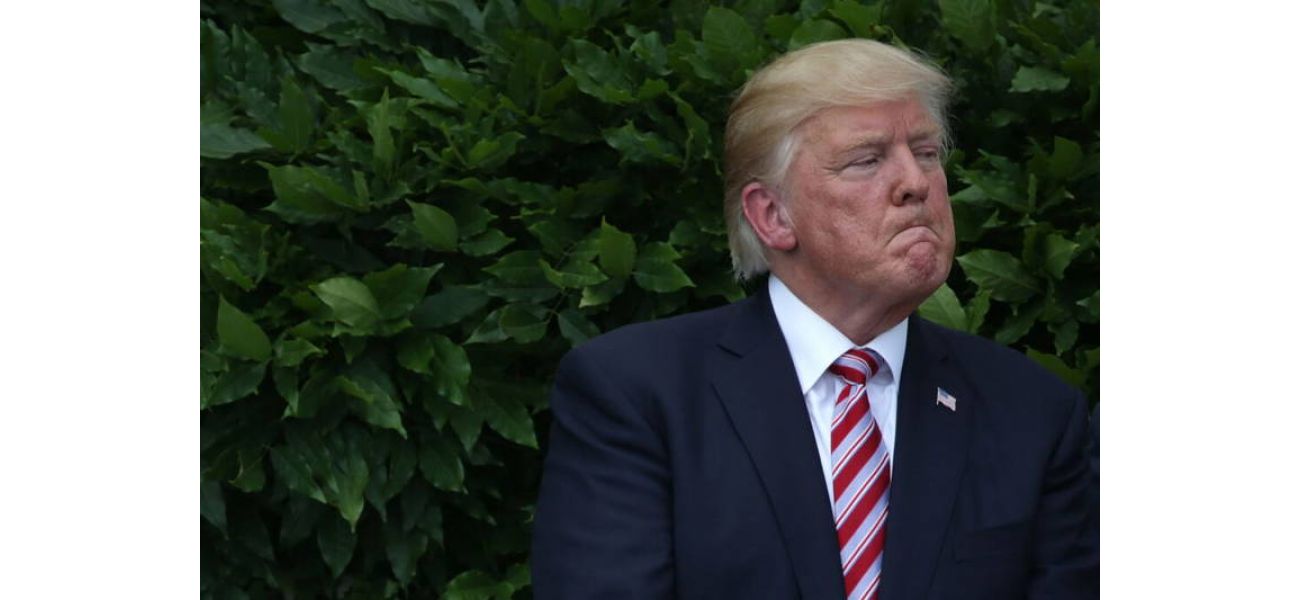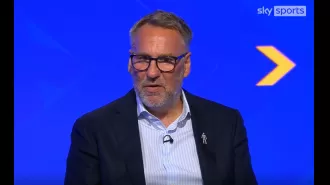A federal judge has put a temporary halt on some of Trump's executive orders that target diversity, equity, and inclusion.
Abelson's ruling stated that the executive orders discourage diversity, equity, and inclusion efforts in businesses and organizations.
February 22nd 2025.

In a significant ruling, District Judge Adam Abelson halted the implementation of a crucial part of former President Donald Trump's executive orders that sought to put an end to initiatives promoting diversity, equity, and inclusion. Judge Abelson, based in Baltimore, temporarily blocked the orders on February 21, citing concerns that they may violate several constitutional rights, including the right to free speech.
According to NPR, the plaintiffs in this case, which include the City of Baltimore and various higher education groups, argued that the executive orders were unconstitutional and an abuse of the president's authority. They also expressed fears that these orders would have a chilling effect on free speech. On the other hand, the Trump administration defended its use of executive orders, stating that they were meant to address DEI programs that were not in line with federal civil rights laws. The administration's lawyers argued that federal spending should align with the priorities of the president.
In his ruling, Judge Abelson pointed out that the executive orders would discourage businesses, organizations, and other public entities from supporting diversity, equity, and inclusion initiatives. This decision by the federal judge in Maryland has dealt a significant blow to Trump's efforts to dismantle these programs.
During the hearing, Judge Abelson stated that the harm caused by these executive orders was due to their public and vague nature. In his written opinion, he further elaborated on this, stating that the orders were constitutionally vague and left federal contractors unsure of how to comply with them. To illustrate this point, Judge Abelson gave an example of a hypothetical situation where a Department of Education-funded elementary school used a computer to teach students about Jim Crow, and another scenario where a road construction grant covered the cost of filling potholes in a low-income neighborhood but not in a wealthy one. He then asked rhetorically if these actions could be considered "equity-related."
According to the plaintiffs, the Trump administration's arbitrary decision to end diversity, equity, and inclusion programs would cause widespread harm. They argued that this would affect ordinary citizens, as their members received federal funds to support various communities across the country. The plaintiffs also expressed concerns that the lack of clear guidelines on what constituted DEI would give the attorney general unchecked authority to enforce the orders in a discriminatory manner.
In his ruling, Judge Abelson addressed these concerns, stating that the termination provision in the executive orders left contractors and their employees uncertain about whether their work or speech would be considered "equity-related." He also cited a recent case that stated that about 20% of the nation's labor force works for a federal contractor, further underscoring the impact of these orders.
The National Association of Diversity Officers in Higher Education, along with several other nonprofits and the mayor of Baltimore, Brandon Scott, argued in their suit that Trump was overstepping Congress' role in determining how funds are allocated. They also asserted that the lack of a clear definition for DEI would give the attorney general unchecked power to enforce the orders in a biased manner. The organization emphasized that in the United States, there is no king, and President Trump cannot silence those who disagree with him by threatening them with the loss of federal funds.
This ruling serves as a reminder that no one person has the power to undermine the values of diversity, equity, and inclusion in our country. As Senator Raphael Warnock eloquently stated, "We live in a White House built by Black hands," and we must continue to fight for equality and justice for all.
According to NPR, the plaintiffs in this case, which include the City of Baltimore and various higher education groups, argued that the executive orders were unconstitutional and an abuse of the president's authority. They also expressed fears that these orders would have a chilling effect on free speech. On the other hand, the Trump administration defended its use of executive orders, stating that they were meant to address DEI programs that were not in line with federal civil rights laws. The administration's lawyers argued that federal spending should align with the priorities of the president.
In his ruling, Judge Abelson pointed out that the executive orders would discourage businesses, organizations, and other public entities from supporting diversity, equity, and inclusion initiatives. This decision by the federal judge in Maryland has dealt a significant blow to Trump's efforts to dismantle these programs.
During the hearing, Judge Abelson stated that the harm caused by these executive orders was due to their public and vague nature. In his written opinion, he further elaborated on this, stating that the orders were constitutionally vague and left federal contractors unsure of how to comply with them. To illustrate this point, Judge Abelson gave an example of a hypothetical situation where a Department of Education-funded elementary school used a computer to teach students about Jim Crow, and another scenario where a road construction grant covered the cost of filling potholes in a low-income neighborhood but not in a wealthy one. He then asked rhetorically if these actions could be considered "equity-related."
According to the plaintiffs, the Trump administration's arbitrary decision to end diversity, equity, and inclusion programs would cause widespread harm. They argued that this would affect ordinary citizens, as their members received federal funds to support various communities across the country. The plaintiffs also expressed concerns that the lack of clear guidelines on what constituted DEI would give the attorney general unchecked authority to enforce the orders in a discriminatory manner.
In his ruling, Judge Abelson addressed these concerns, stating that the termination provision in the executive orders left contractors and their employees uncertain about whether their work or speech would be considered "equity-related." He also cited a recent case that stated that about 20% of the nation's labor force works for a federal contractor, further underscoring the impact of these orders.
The National Association of Diversity Officers in Higher Education, along with several other nonprofits and the mayor of Baltimore, Brandon Scott, argued in their suit that Trump was overstepping Congress' role in determining how funds are allocated. They also asserted that the lack of a clear definition for DEI would give the attorney general unchecked power to enforce the orders in a biased manner. The organization emphasized that in the United States, there is no king, and President Trump cannot silence those who disagree with him by threatening them with the loss of federal funds.
This ruling serves as a reminder that no one person has the power to undermine the values of diversity, equity, and inclusion in our country. As Senator Raphael Warnock eloquently stated, "We live in a White House built by Black hands," and we must continue to fight for equality and justice for all.
[This article has been trending online recently and has been generated with AI. Your feed is customized.]
[Generative AI is experimental.]
0
0
Submit Comment





